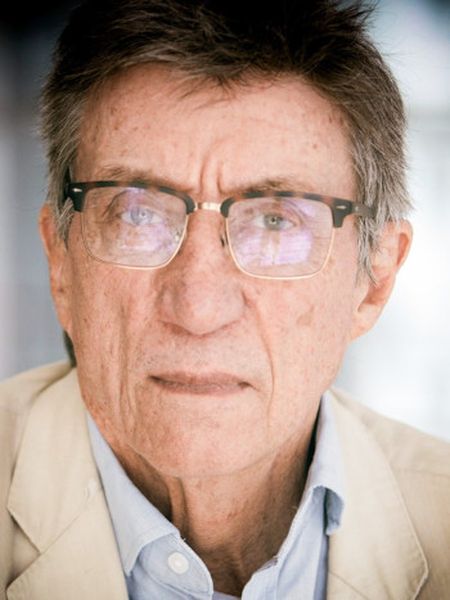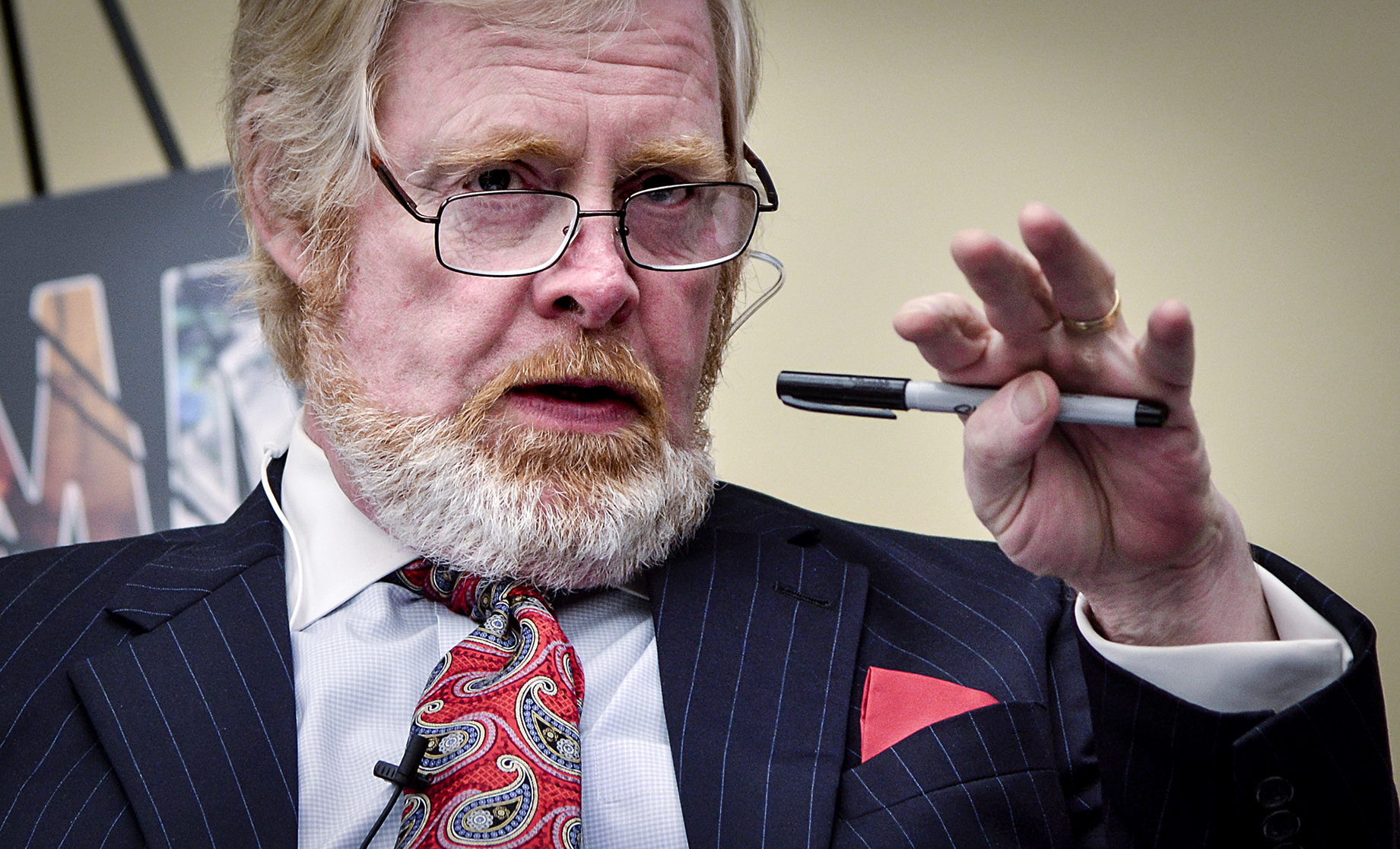US President Donald Trump’s nominee for ambassador to South Africa has refused to tell US senators if he would support or oppose the reinstitution of laws in the US allowing only white people to vote.
Leo Brent Bozell III, a member of a famous conservative family, was being grilled on Thursday by Democratic Party senators about his views on race and other issues during his confirmation hearing before the Senate Foreign Relations Committee.
Senator Chris van Hollen quizzed him about Trump’s policy of encouraging white Afrikaners to get refugee status in the US on the grounds that a genocide was being conducted against them in South Africa.
Van Hollen asked Bozell if he agreed with Trump’s “legally and morally absurd claim that the government of South Africa was engaged in genocide against Afrikaners there”. Bozell declined to answer the question directly. When Van Hollen demanded a simple yes or no, insisting that “genocide is a legally defined issue”, Bozell replied: “I’m not a lawyer, so I can’t address it that way.”
Van Hollen went on to say that Trump was reported to be reducing the number of refugees that can come into the US to around 7,500, “and that the overwhelming majority of those would be Afrikaners, white South Africans.
“That, in my view, is a gross misuse of our policies. Do you agree that we should not have a refugee policy, admission policy, that’s based on race?” he asked Bozell.
Bozell replied, “In South Africa, you have thousands of attacks that have taken place against white farmers.
“They fear for their lives. What the president is saying is that they can come to the United States as refugees if they fear for their lives.”
/file/dailymaverick/wp-content/uploads/2025/05/2214743789-1.jpg)
Von Hollen said Bozell had not answered his question and asked again: “Apart from South Africa, do you believe we should have a race-based refugee admissions policy? Yes or no?”
“I believe in South Africa…” Bozell began, but Van Hollen cut him off, saying that was not the question directed at him.
Democratic Senator Chris Murphy then repeated the question to Bozell: “Do you support having a refugee admissions policy in this country that only admits white refugees?”
Bozell replied, “Senator, I don’t make that policy.”
Murphy said it would be an easy question for virtually any nominee for ambassador, who would answer, “Of course, we don’t support having a refugee policy where we only admit white people.
“So why can’t you give me your personal view on that?”
“Because, Senator, I am here to serve America and to do what the president is asking me to do.”
Murphy then asked him: “Would you support reinstituting laws in this country to only allow white people to vote?”
Bozell replied: “Senator, I’m going to serve as ambassador to South Africa, and I’m going to focus on that.”
Murphy: “You will not share your personal views on whether it is right or wrong to reinstitute discriminatory policies in this country to prevent black people from voting?”
“Senator, my personal views are irrelevant. I am serving here to do what the president is asking me to do in South Africa.”
“That’s just simply not true,” said Murphy. “The whole reason that you’re appearing before this committee is because your personal views, your history, is absolutely relevant to your fitness to serve.
“That is pretty stunning that you will not share your views not only on whether we should have a refugee admissions process that is race-based, but you won’t share your personal views on whether we should reimpose discriminatory treatment against black Americans.”
Van Hollen asked Bozell to confirm that he had opposed the Comprehensive Anti-Apartheid Act that introduced sanctions against the apartheid government in South Africa in 1986.
Bozell said that at the time, conservatives were opposed to the ANC and Nelson Mandela because they were aligned with the Soviet Union, “which was the biggest threat to peace in the world and the mortal enemy of the United States”.
However, when the Berlin Wall came down, and Mandela and the ANC’s association with the Soviet Union ended, the conservative movement’s relationship with Mandela changed.
“If I’m asked today, who do I think is the most revered person in South Africa? Who do I have the most respect for? It would be Nelson Mandela.”
Bozell said if confirmed as ambassador, he would approach his ambassadorship “with respect for the South African people”. South Africa was the US’s largest trading partner in Africa, and more than 500 businesses in South Africa employed more than 250,000 South Africans.
But, he added, this was a challenging moment for US-South Africa relations.
Serious concerns
“The president has expressed serious concerns about South Africa that, for too long, have been unaddressed.
“When people and businesses in South Africa believe their private property rights are at risk, when many South Africans feel unsafe in their homes, when rampant corruption and unfair business practices hold back the South African economy, and when South African politicians greet as friends those who seek to destabilise the world’s peace and security, then common ground between our two countries feels harder to find.”
And so, Bozell said, as ambassador, “I will communicate our objections to South Africa’s geostrategic rift from non-alignment toward our competitors, including Russia, China and Iran.
“I will press South Africa to end proceedings against Israel before the International Court of Justice and to pressure the International Criminal Court prosecutor to discontinue this lawfare, which is belied by Israel’s support for the ceasefire in Gaza and commitment to the rules of war throughout the conflict.
/file/dailymaverick/wp-content/uploads/2024/12/15-11939628.jpg)
“Second, I will advance the president’s invitation to Afrikaners who wish to flee unjust racial discrimination.
“I will explore how we can support the South African government in making sure all South Africans can thrive free from the threat of violence.
“I will support the president’s call for the South African government to rescind its support for the expropriation of private property without compensation.
“Finally, I will advocate for business interests by promoting fair trade practices and reduce barriers that will level the playing field for US companies and empower South Africa as an engine of economic growth, creating a more prosperous future for both our countries.”
Bozell said he would actively pursue a strategic partnership with South Africa to develop and process critical minerals.
He said China had been “using unfair business practices to make deals with the South Africans to take their raw minerals, buy them, send them to China, refine them, and increase their value dramatically and increase the control that China has on these critical reserves that the United States needs.
“What we propose to do is to allow South Africa to process and to enrich their own minerals” — through a partnership with the US. DM





 Leo Brent Bozell III, US President Donald Trump's nominee for ambassador to South Africa. (Photo: Kris Connor / Getty Images)
Leo Brent Bozell III, US President Donald Trump's nominee for ambassador to South Africa. (Photo: Kris Connor / Getty Images)